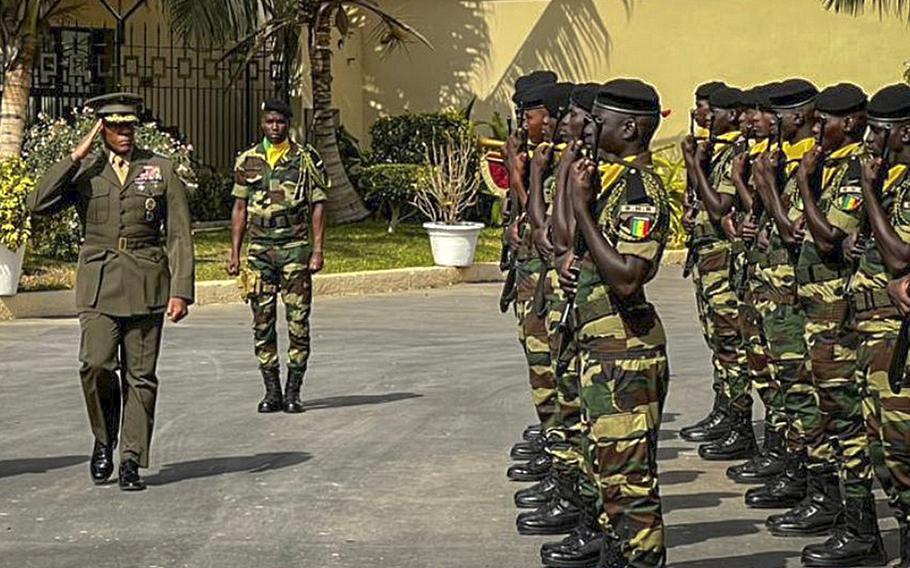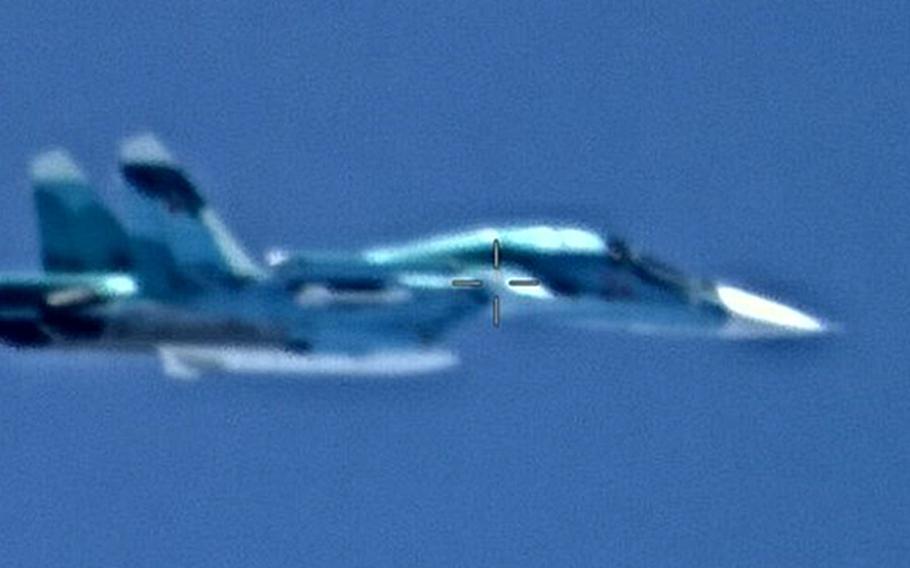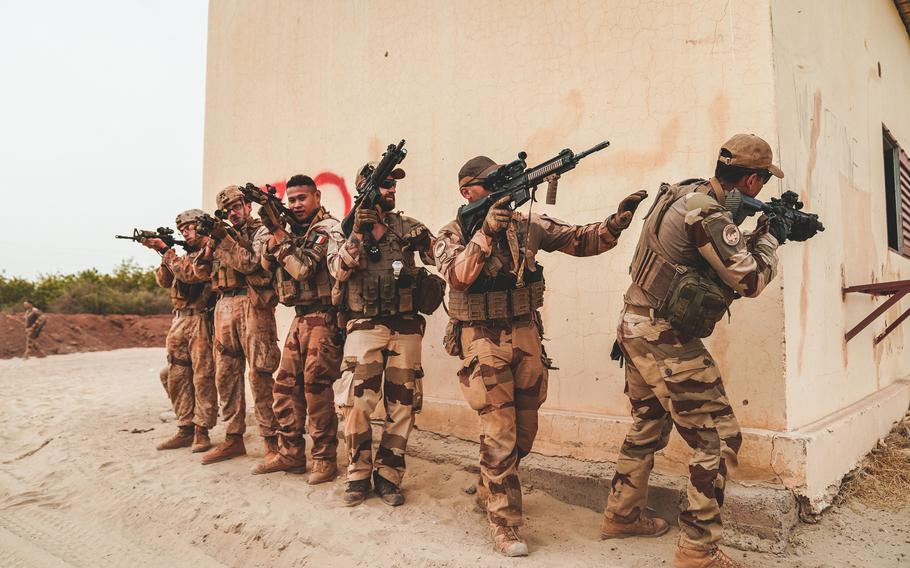
Gen. Michael Langley, commander of U.S. Africa Command, salutes Senegalese troops during his visit to the African country, Feb. 6, 2023. Langley told reporters on March 2 that the Russia-backed Wagner Group is destabilizing other nations in Africa. (U.S. Embassy Senegal)
Russian mercenaries are looking for ways to expand their foothold in Africa, where their presence has added to instability in parts of the continent, U.S. Africa Command’s top general said Thursday.
The Wagner Group, which has ties to the Kremlin, has become a major factor in numerous countries, including Mali, the Central African Republic and Libya, AFRICOM’s Gen. Michael Langley told reporters during a teleconference held in Rome, where he met with African defense chiefs.
“For several years Wagner has been a growing influence across the continent,” Langley said. “They have destabilizing effects in every country that they have set foot on … and they want to expand their presence in other countries as well.”
Langley’s comments come as Wagner fighters play an increasing role in Russia’s war in Ukraine, where they are deployed to supplement a Russian military that has suffered high casualties. But the large-scale fighting in Ukraine, which U.S. officials say has killed more than 100,000 Russian troops, doesn’t appear to have impeded Wagner’s efforts in Africa.
Langley said Russia’s aim in Africa revolves around gaining access to natural resources and pursuing questionable business interests.
Although overall Russian trade in Africa pales in comparison to that of China and the U.S., the Kremlin is the leading external power in arms sales.

A Russian fighter jet is photographed deploying to Libya in 2020. Russian mercenaries are looking for ways to expand their foothold in Africa, Gen. Michael Langley, commander of U.S. Africa Command, said on March 2, 2023. (U.S. Africa Command)
In recent years, Russian weapons sales and transfers to African countries have increased from $500 million to more than $2 billion annually, far outstripping U.S. and Chinese deals, according to a 2022 report by the Rand Corp. think tank.
Moscow’s involvement in Libya in particular, where Wagner forces have helped prop up the warlord Khalifa Hifter, has grabbed the attention of military officials.
AFRICOM has accused Russian operatives of doing everything from planning roadside bombings to deploying fighter planes to Libya to assist Hifter in his yearslong fight against the country’s Western-supported government.
Airspace over Libya, an oil-rich nation on the Mediterranean Sea, is of importance to U.S. interests in part because it is between U.S. bases in Europe and operational areas in the interior of Africa.
Some security analysts have warned that Russia’s long-term aim in Libya could be to set up air defense systems that could challenge U.S.-allied access in a crisis.

U.S. Marines and French soldiers conduct urban training during an exercise in Timbuktu, Mali, in 2021. France later pulled its troops out of Mali after the country moved closer to Russia and partnered with the Kremlin-backed Wagner Group. (William Chockey/U.S. Marine Corps)
Langley, who took over as head of AFRICOM in August, said there is growing awareness in Africa about Wagner’s brutal tactics, among them allegations of the “arbitrary killing of civilians.”
“All of their activities of note have not helped these countries,” he said.
In January, United Nations experts called for an independent investigation into Wagner Group actions coordinated with government forces in Mali, citing accounts of “horrific executions, mass graves, acts of torture, rape and sexual violence, pillaging, arbitrary detentions and enforced disappearances,” according to a U.N. statement.
In the Central African Republic, Russian diplomats backed by Wagner troops forced changes to remove presidential term limits, Daniele Darlan, who was removed as president of the country’s highest court, said in a New York Times report in December.